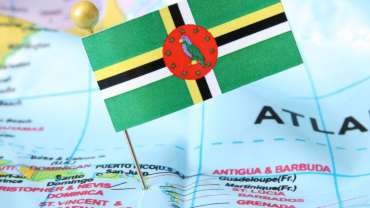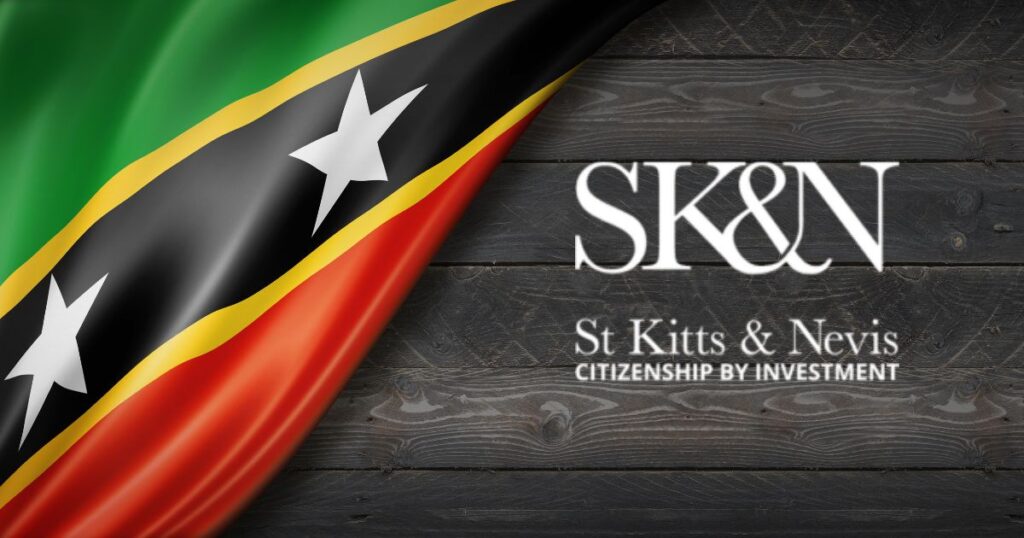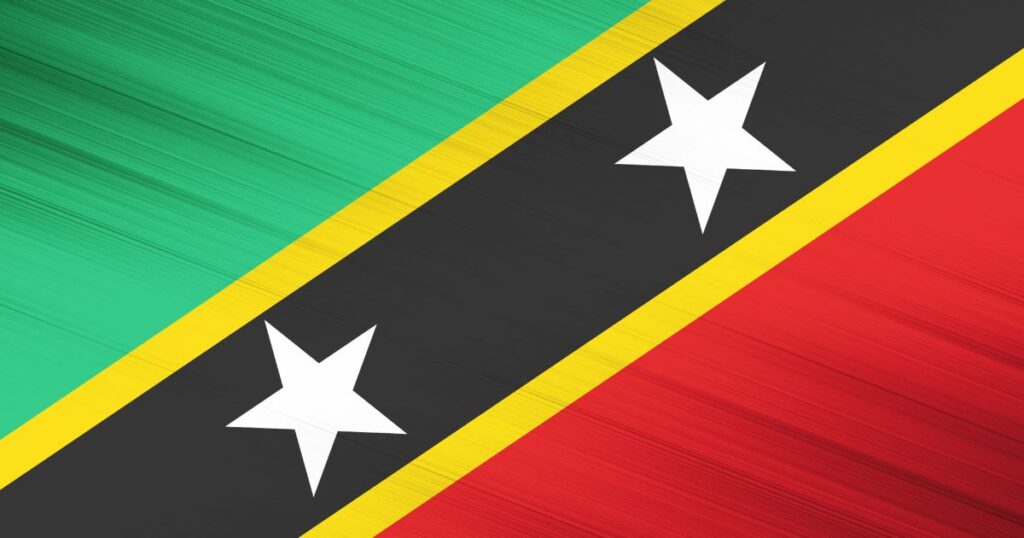The Dominica Citizenship by Investment (CBI) Programme has been a crucial element in funding many of the projects that make reaching the sustainable development goals possible.
The impacts of Hurricane Maria in 2017 were severe both for Dominica’s economy and it’s citizens’ wellbeing. To prevent devastation from natural disasters, the government pledged to build back better. It has prioritised the Sustainable Development Goals (SDGs) for several years and has various projects in the pipeline to ensure these goals are met by 2030, if not sooner.
The UN General Assembly adopted the 2030 Agenda for Sustainable Development, including 17 Sustainable Development Goals (SDGs). The 2030 Agenda for Sustainable Development, adopted by all United Nations Member States in Sep 2015, provides a shared blueprint for peace and prosperity for people and the planet, now and into the future. At its heart are the 17 Sustainable Development Goals (SDGs), which are an urgent call for action by all countries – developed and developing – in a global partnership.
The Citizenship by investment has helped Dominica fulfil the majority of these goals.
1.No Poverty
The Citizenship by Investment Programme drives foreign investment, which helps create jobs on the Nature Isle and improves employment standards with new projects. During the construction phase of the citizenship by investment approved hotels and resorts, over 1,000 jobs were created, and 900 permanent jobs will become available upon full completion.
To date, foreign investment has sponsored over 4,500 business owners and helped close to 4,000 Dominicans obtain work placements, of which two-thirds were assigned to community projects.
Citizenship by investment supported 32 projects in the agricultural and fisheries sector, which lead to a boost in employment through targeted training programmes.
2. Zero Hunger
The Ministry of Agriculture has begun working with farmers to build resilient food systems and transform the agricultural sector into more technology-based. Support has been provided to develop aquaculture farms, prawn farming, and resilient crops and agro-processing.
To promote farm to table and balanced nutrition, Dominica’s Ministry of Agriculture enlisted local backyard garden enthusiasts to grow their own food. The Ministry distributed seedlings intending to put fresh nutritious produce closer to homes.
3. Good Health and Well-Being
The construction of the Marigot Hospital commenced in early 2020 and is well underway. The new two-floor hospital, funded by citizenship by investment, will be a total of 4,000 square feet and will host 75 beds. A wide range of essential services and modern state-of-the-art facilities, including Ambulatory Services, Emergency Care, Intensive Care (ICU), Maternity and Pediatric Care, Laboratory and Radiology Services and Trauma Centre, will be on offer. The hospital is expected to be completed by April 2021.
Three hospitals and six health centres have been repaired after Hurricane Maria, and 16 Dominican children were sent overseas for complicated medical treatment.
4. Quality Education
Dominica’s Citizenship by Investment Unit has allocated $26 million to sponsor its youth into some of the world’s best international schools.
Education remains a top priority for the Dominican government with millions funnelled into the sector from the Citizenship By Investment Unit.
CBI has highly uplifted is education which ensures young Dominicans a brighter future.
Student Sponsorship
Dominica’s CBI Unit has allocated $26 million to sponsor its youth into some of the best international schools around the world. Many of the students are placed in educational institutions in the United States, Canada, or the United Kingdom for a life-changing post-secondary experience.
Rehabilitated Schools
Along with international education, the CBI Unit also wants to guarantee that national institutions are also strong. After 2017’s Hurricane Maria’s wrath, much of the infrastructure of the island was lost. Nonetheless, according to the Financial Times 2019 PWC report, CBI funds helped cover the costs of 15 schools that were damaged on the island.
Education Mentorship Programme
The Education Mentorship Programme, which is a stem of the National Employment Programme, places mentors within schools to tutor students who would not otherwise be able to afford or access extra attention after school. Overall, nearly 4,000 people participated in these internship programmes since 2013 and over 200 people have graduated and entered permanent jobs as a result. Individuals on these schemes have worked across several sectors of the economy, including both the public and private sectors, and have helped to develop both local communities as well as mentoring future generations of workers.
The funds for education initiatives are retrieved from Dominica’s Economic Diversification Fund, one of the options foreign investors can opt for when obtaining a second citizenship from the island through its CBI programme.
5. Gender Equality
The Dominica Climate Resilience and Recovery Plan 2020- 2030 promotes gender equality and inclusion. Projects developed will ensure that gender equality means that women, men, girls and boys enjoy the same human rights status, have equal opportunities, equal access and control over resources and equal participation in the decision-making.
6. Clean Water and Sanitation
Citizenship by investment funded investment of over EC$175 million in water sources over the period 2015-2019. Funds have also been used to dredge rivers in 11 different locations, an essential part of mitigating future flooding risks.
7. Affordable and Clean Energy
Approximately 28 per cent of the country’s electricity is generated from hydropower and wind—more than any other Caribbean Community (CARICOM) state. The government is also in the process of constructing a geothermal power plant. EC$6 million has been allocated to the construction of a 7MW geothermal power plant in keeping with the government’s vision to become the first climate-resilient country in the world. This plant is projected to make Dominica self-reliant on energy.
8. Decent Work and Economic Growth
The Government of Dominica uses funds from citizenship by investment funds to stimulate economic recovery for its citizens to reduce unemployment. The citizenship by investment programme drives foreign investment, which helps create jobs on the island and improves employment standards. Citizenship by investments funding of hotels and eco-lodges created over 1,000 jobs during construction, providing direct employment for approximately 900 hospitality workers, and supporting the livelihoods of those connected with tourism.
Throughout the lockdown, the 72,000-people Caribbean island maintained the National Employment Programme (NEP), costing the government EC$3.7 million per month. The scheme helped young people secure internships and jobs, advance their skills, increase human capacity, benefit local communities, and support long-term economic growth.
Revenues from the Citizenship by Investment Programme fund the NEP, and since its launch in 2013, the government increased its investment into the scheme nearly twelvefold. To date, citizenship by investment contributions has financially supported 3,896 interns and 4,500 businesses.
Citizenship by investments impact on Dominica’s economy is estimated to increase GDP by around EC$150 million and tax receipts by around EC$30 million in the upcoming years. Additionally, CBI expenditure is forecasted to have had a significant long-term impact on the island’s economic potential.
9. Industry Innovation and Infrastructure
Citizenship by investment funding has resulted in the rehabilitation of 15 sections of damaged roads and 19 bridges. Citizenship by Investment also contributed to the construction of over 1,000 hurricane-resilient homes and aims to support a further 5,000.
In August 2020, the government of Dominica acquired 411 acres for the construction of a new international airport. The international airport, funded by citizenship by investment, will allow the country to get goods to market quicker, increase the markets’ scope, and promote economic diversification.
10. Reduced Inequalities
A human rights-based approach to social protection requires special attention to be given to those who belong to the most disadvantaged and marginalised groups in society. This entails guaranteeing non-discriminatory treatment and adopting proactive measures to enable those suffering from structural discrimination to enjoy their rights.
Projects under the Climate Resilience and Recovery Plan 2020- 2030 will critically consider the specific and differential impacts of disasters on men, women, and vulnerable groups in Dominica to ensure that the goals are met.
11. Sustainable Cities and Communities
Making the towns, cities and communities of Dominica sustainable means creating career and business opportunities, safe and affordable housing, and building resilient societies and economics. All of the sustainable development goals contribute to Dominica’s aim to create sustainable cities and communities: from the Housing Revolution to climate-resilient infrastructure and everything in between.
12. Responsible Consumption and Production
Responsible consumption and production involve using resources efficiently, taking account of the ecosystem services to make a living, and reducing dangerous chemicals.
The construction of the geothermal power plant encourages domestic renewable energy sources to reduce fuel imports’ dependence. Construction of SMART schools and health centres provides an optimal environment, making them longer lasting and self-sustaining. The country’s ban on single-use plastics minimises the significant damage to the ground, sewerage systems and waterways.
Citizens are encouraged to adopt eco-friendly habits by using biodegradable packaging like baskets and boxes by imposing a zero per cent import tax on these materials and avoiding plastic straws and containers.
13. Climate Action
Dominica has taken urgent action to combat climate change with the sustainable development goals projects, including new sustainable infrastructure to ensure durability against extreme natural disasters, banning single-use plastic, and encouraging eco-friendly habits.
The Commonwealth of Dominica has articulated a bold and unparalleled vision to become the world’s first Climate Resilient nation. Hurricane Maria made landfall on the southwest coast of the Commonwealth of Dominica at 9:35 p.m. on September 18th, 2017 as a Category 5 storm, with sustained wind speeds of 220 mph and higher gusts.
The vision of building a Climate Resilient Dominica is about significantly reducing the impact of, and time to recover from, climatic and other natural shocks, as well as boosting the overall socioeconomic development trajectory of the country.
The Climate Resilience and Recovery Plan (CRRP) should reflect three pillars of resilience, namely: (1) Climate Resilient Systems, (2) Prudent Disaster Risk Management Systems, and (3) Effective Disaster Response and Recovery.
14. Life Below Water
Dominica’s marine ecology is essential for protecting the coastline and coastal communities. The Resilient SEA Blue Economy Triple Bottomline Investment Fund seeks to leverage private sector investment while, at the same time, steering it towards initiatives, which are key to support the overall climate resilience ambitions of Dominica.
These initiatives’ outcomes ensure that Dominica’s coastal assets are secured, with beaches, coral reefs, and offshore marine assets protected against climate risks. They also ensure that coastal areas are developed in a sustainable way to support fisheries, marine-based tourism, and coastal businesses. The fund receives a return on investment to reflect the assets’ increased value as they are developed sustainably.
15. Life on Land
This goal aims to protect, restore, and promote sustainable use of terrestrial ecosystems, manage forests, and halt and reverse land degradation and biodiversity loss. Dominica’s ecosystem is a unique asset, which is essential to tourism and national identity. The preservation of the ecosystem is vital for the long-term sustainability of the island.
The “Roots” National Tree Planting Initiative aimed to plant one million trees by the end of 2020 to contribute to the island’s sustainable future. Encourage farms to farm organically, as it is an important method for increasing resilience. This aside, staying true to Dominica’s mantra of being the Nature Island of the world, protecting lands and waters from harmful chemicals is a priority for the country.
The Responsible Land Stewardship Initiative aims to engage grassroots youth, women, and at-risk populations in securing equal access to land use. This initiative seeks to build community knowledge on land-use decisions, and plan construction that incorporates environmental solutions. The initiative also promotes the stewarding of natural biodiversity, soil restoration practices, and prevention of landslides.
16. Peace, Justice and Strong Institutions
The Nature Isle is a safe and friendly nation with strong institutions. All the investments made through the CBI Programme go through rigorous multi-tiered due diligence procedures. Dominica scored full marks for stringent vetting procedures in the CBI Index in 2020. Both internal Unit staff and the Joint Regional Communications Centre, and other external diligence firms perform the diligence mechanisms.
The Programme focuses on its applicants’ overall quality and integrity, only accepting outstanding charactered and reputed individuals.
17. Partnerships for the Goals
Dominica’s Sustainable Development Goals can only be realised with strong global partnerships and cooperation. CBI projects like the Marigot Hospital have encouraged more international partnerships with countries like China.
The World Bank has partnered with Dominica and has funded several socio-economic projects on the island, including supporting farmers with equipment, assisting the digital economy and developing its geothermal potential.
In August 2020, Dominica announced its participation in the CARICOM Travel Bubble. The bubble comprises of eight other islands: Anguilla, Montserrat, St Kitts and Nevis, Grenada, St Lucia, Barbados, St Vincent and the Grenadines, and Antigua and Barbuda. This bubble enables travellers from nations that have effectively tackled the pandemic’s spread to visit Dominica easier.
Conclusion
Citizenship by investment offers applicants the chance to obtain Dominican citizenship by contributing to the country’s Economic Diversification Fund (EDF), supporting development projects throughout the nation. Alternatively, applicants can invest in eco-luxury government-approved real estate.





